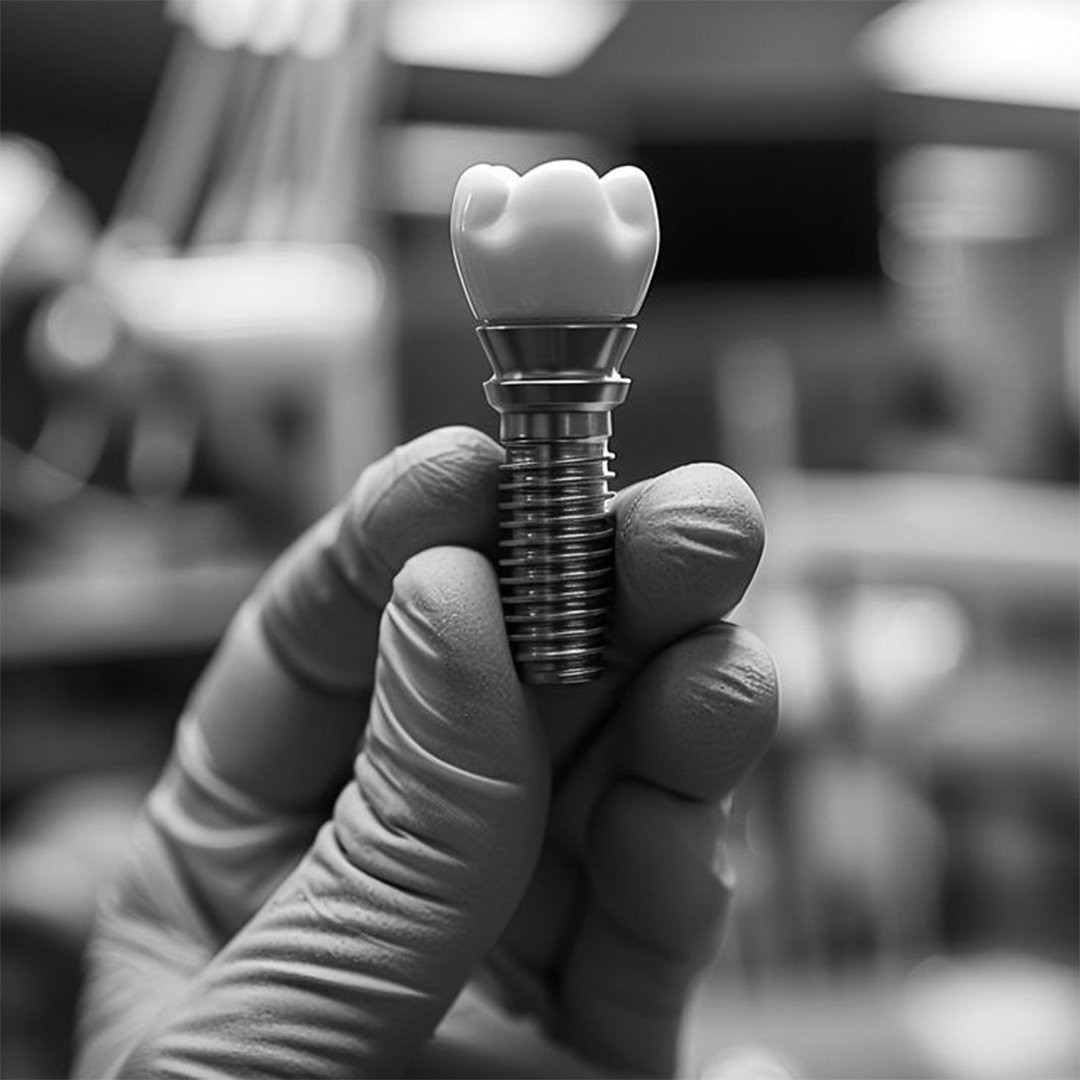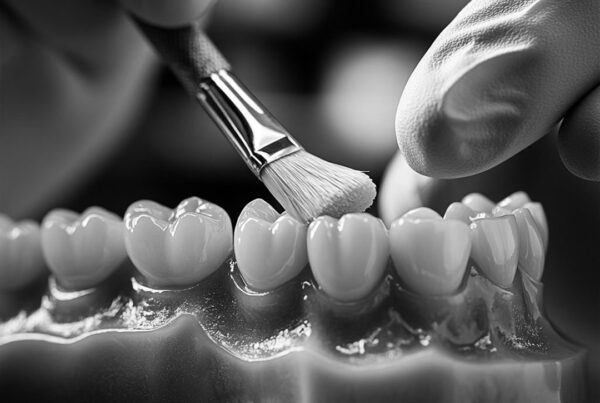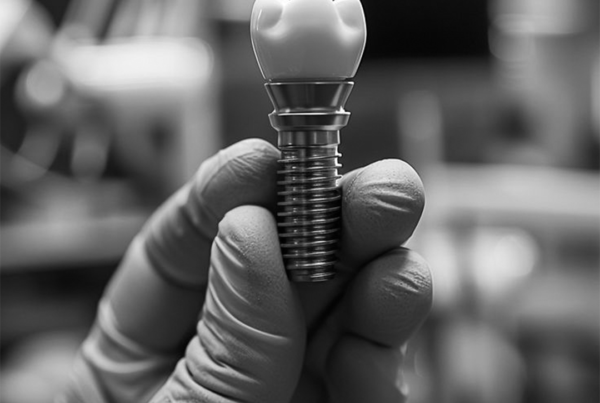Dental implants are artificial tooth roots placed in the jawbone to replace lost teeth. They are usually made of biocompatible materials such as titanium or zirconium. These materials are preferred because they are compatible with the human body and do not cause allergic reactions. Implant treatment is a modern solution for aesthetic and functional compensation of tooth loss.
The implant is placed through a surgical procedure performed by a dentist. Prior to the procedure, the patient’s general health, jawbone structure and gum health are assessed. Using the necessary examination and imaging methods (e.g. X-rays or CT scans), detailed information about the area where the implant will be placed is obtained. This stage is critical to the success of the treatment process.
After the dental implant is placed, it usually takes several months for the bone to grow and fuse around the implant. This process is called “osseointegration” and is necessary to ensure the stability of the implant. Once the healing period is complete, a gum-compatible abutment is placed over it and then a prosthetic tooth is added, tailored to the individual’s specific needs. These stages ensure that the individual who has lost teeth regains them both functionally and aesthetically.
Implant treatment can be applied in a wide range of cases, from a single tooth loss to multiple tooth losses. It is also used to support fixed or removable prostheses for completely edentulous individuals. Implants positively affect the social life of individuals with tooth loss, increase their self-confidence and provide comfort in daily life.
While dental implants offer the most natural and permanent solution for individuals with tooth loss, the application methods are constantly innovating thanks to the developing technology and material science over time. Today’s implant systems can be customized according to the needs of patients, making the treatment process more effective.
As a result, dental implant treatment is one of the most effective methods offered by modern dentistry. It stands out as a treatment option that improves the quality of life of patients with both aesthetic and functional advantages.
Advantages
- Natural Look and Feel: Implants offer a look similar to natural teeth and often feel natural to patients.
- Durability: Dental implants are long-lasting and can last 10-15 years or more with proper care.
- Chewing Function: Implants offer an effective chewing function similar to that provided by natural teeth.
- Jawbone Protection: Implants help prevent the jawbone from eroding over time.
- Tooth Immobilization: Implants are placed without damaging other teeth, preventing the surrounding teeth from shifting.
- Comfort: It eliminates problems such as slipping or protruding prostheses and provides a more comfortable use.
Disadvantages
- Cost: Implant treatment is generally more expensive than other dental treatment methods.
- Surgical Intervention: Implant placement requires a surgical procedure, which carries some risks.
- Healing Process: It takes time for the implant to fuse with the jawbone and patience is required during this time.
- It may not be suitable for every patient: Implant treatment may not be suitable for patients with poor bone structure or health problems.
- Risk of Infection: There is a risk of infection after surgical intervention.
10 Frequently Asked Questions
- How long does implant treatment take?
- It usually takes 1-2 hours to insert the implant, but the healing process can take several months.
- Are implants painful?
- The insertion is done under local anesthesia, so there is no pain during the procedure. There may be slight discomfort afterwards.
- How does the implant treatment process work?
- First, there is an examination and planning, then the implant is placed and after the healing process, a prosthetic tooth is placed on top.
- Who can receive implants?
- Most adults with sufficient bone volume and in good general health.
- Who is not recommended for implant treatment?
- It may not be recommended for people with severe gum disease, serious systemic diseases or smokers.
- How long does an implant last?
- With proper care, it can last 10-15 years or longer.
- What should be considered after implant treatment?
- Oral hygiene should be observed and regular dental check-ups should be performed.
- Is implant treatment covered by insurance?
- Most insurances may not cover implant treatment, so it is important to check your policy.
- What foods should not be eaten after implant treatment?
- Hard, sticky or extremely hot foods should be avoided.
- Is there pain after implant treatment?
- There may be some mild pain after the procedure, but this can usually be controlled with painkillers.
















